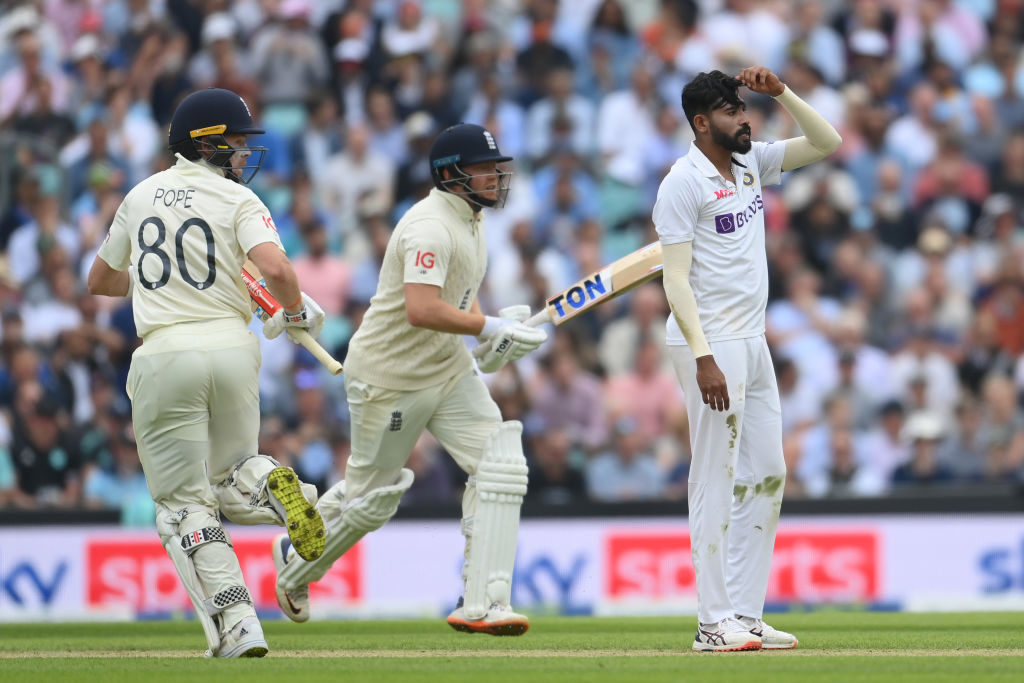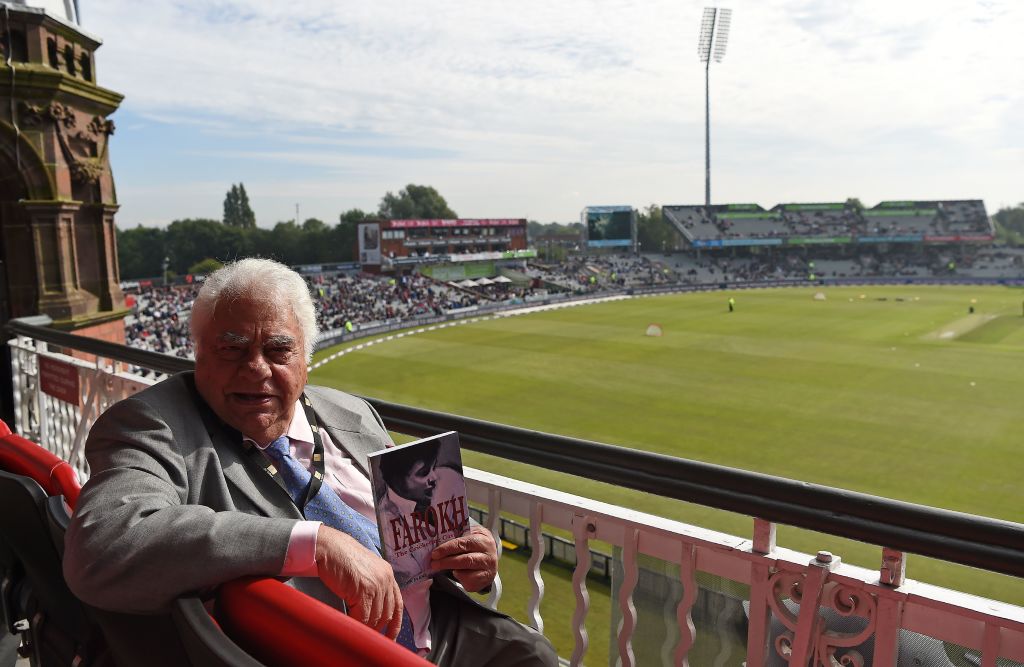- Tuesday, April 16, 2024

By: Shubham Ghosh
AT a time when England and India have locked horns over a Test series, cricket historians have been found unearthing past gems pertaining to the rivalry between the two teams that dates back to almost nine decades.
The year 2021 marks a special milestone in the history of India’s rivalry with their former colonial masters. It was exactly 50 years ago that India had beaten England in a Test match and series on their soil for the first time.
It was the 11th Test series between the two nations overall starting in 1932 and the seventh that the Asians played in England. And the first win that came at the Oval where incidentally England and India are currently playing their fourth Test match was a top success. Ajit Wadekar’s men beat Ray Illingworth’s team by four wickets in the final match of the three-game series to bag the three-match series 1-0.
ALSO READ: India strike back after Shardul Thakur propels India to 191
However, there is an interesting story that comes with India’s historic win in 1971.
Fans of the touring side borrowed an elephant from Chessington Zoo, Greater London, and brought it to the Oval in the middle of the match and the Indian team considered it a lucky omen since the arrival of ‘Bella’ – the jumbo – coincided with the Ganesha (elephant-headed god) festival, a widely celebrated one in India, an AFP feature said.
Virat Kohli: Not a captain for all seasons?
But the elephant was not the only animal who bagged the limelight. Legendary Indian leg-spinner Bhagwat Chandrasekhar recalled that a horse could also have played a positive role in India’s memorable win.
Chandrasekhar was the man who turned the match to India’s favour with a superb show of 6 for 38 in the second innings that saw the English batsmen getting all out for a paltry 101 in their second essay. This happened after the home team got a lead of 71 runs in the first innings as India were bowled out for 284 in the first innings in response to England’s 355. Chandrasekhar’s spell brought India strongly back into the game as the visiting team required only 173 runs to win the series and they did it with four wickets to spare.
But how was the horse relevant for Chandrasekhar?
“I was walking back to my run-up and Dilip Sardesai shouted “Hey Chandra, bowl him ‘Mill Reef’,” the bowler, who had a physical ailment, said a video message to an audience at London’s Taj St James Court Hotel celebrating the series’ ‘Golden Jubilee’ on Wednesday.
“There was a horse called Mill Reef in England, which was winning all the big races (including the 1971 Epsom Derby) and it had tremendous speed,” the bowler who took 242 wickets in 58 Tests at an average of 29.74.
I had the idea of bowling my googly to John Edrich but then I thought ‘Dilip Sardesai is a good student of the game’.”
Chandrasekhar then bowled the quicker ball, which he was known for, and that deceived England’s No.3 batsman John Edrich, who he bowled for a duck.
“Before he could lift the bat, the ball hit the stumps,” Chandrasekhar, now 76, said while joyfully recalling Edrich’s exit.
Farokh Engineer, who was behind the stumps in that series, had no reservation in admitting Chandrasekhar’s greatness.

“Chandra, with due respect I think he is the greatest spin bowler India has produced,” Engineer, who kept superbly against India’s other famous spin bowlers Erapalli Prasanna, Bishan Bedi and Srinivasaraghavan Venkataraghavan.
“He was a freak bowler. He was a polio victim, and hats off to him, he made his defect into a great asset,” Engineer, now 83, said about Chandrasekhar who finished with eight wickets in that match.
There were also other funny little stories related to that match and series. Engineer himself was one of the unbeaten batsmen when India won the game, thanks to the winning runs hit by his partner Abid Ali, but he had very little time to relish the victory that came on the fifth and final day since he was due to play for English county side Lancashire in Manchester the very next day.
“The motorways weren’t as good in those days, I got home at about four o’clock in the morning (0300 GMT) and at 10:30 am, I am striding out to open the innings with David Lloyd,” Engineer said.
“To my surprise, I got a standing ovation from the predominantly English crowd.
“I thought ‘this is real sportsmanship – I’ve just shafted their country the day before and hear they are giving me a standing ovation. I had a tear in my eye,” he said.
England batsman James Jameson, who was England’s top scorer in the first innings with 82, also had something to share. He said he is the only one from the two camps who had a foot in both camps.
“I’m a Bombay (Mumbai)-wallah – I was born in Byculla,” Jameson, 80, said at the event supported by the ICICI Bank, East African Foods and West Midlands India Partnership. He also revealed that he was once approached to play for India but he turned down the saying “my home was in England”.
Former India captain Ravi Shastri, who is currently the head coach of the Indian national team, was also present at the event. He said that game at the Oval was a key moment in his life.
“I was nine years old, listening to it on Test Match Special from the BBC on 9.74 metres wavelength on the 31 metre band,” Shastri, who went on to make his India debut a decade after that Test, said.
“I listened to every ball in that game… and of course Farokh, he is from my school, my college, we go a long way back.
“For a nine-year-old, it inspired me no end. One day when you play cricket you want to win a series in England. It happened for me as a player (1986) and as a coach (in 2007),” he said.
India-England rivalry in red-ball cricket is not just about statistics. It’s about history and there could be more additions to that history in the current series as well.
![]()